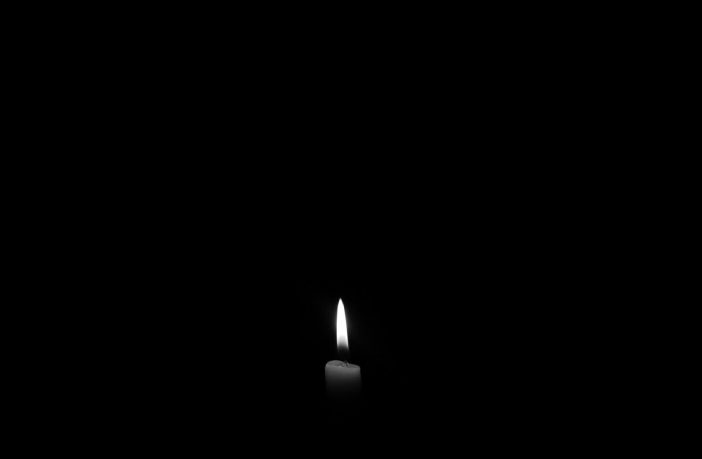Opinion
- Winter is coming. And unlike the tv series Game of Thrones, which hasn’t been on the air since 2019, loadshedding is still going strong for its 16th year since it first reared its ugly head in 2007.
- Similar to Game of Thrones, however, loadshedding may also end with a disastrous last season.
In ages past, loadshedding was a mere annoyance. Something we didn’t even prepare for. I remember watching electrical load warnings on TV, promptly followed by hastily turning off lights around the house. Some sort of lazy civil duty. I am not sure any South Africans care enough to go through such petty motions these days.
Many of us no longer get our warnings from TV. Apps like EskomSePush are mainstays of a South African’s smartphone. Solar panel and generator usage has become so prevalent that municipalities are worried that they won’t even be able to sell enough electricity. Inverters and batteries fly off the shelves as soon as they are restocked.
Yet, despite the lessening demand as the economy crumbles into dust and fewer and fewer people come to rely on Eskom, the stages keep on being pushed higher. News of new, unheard of stage and levels fill newsfeeds. Some so high that they may have to add extra hours to the day for them to become possible.
Throughout this all, the constant threat of winter looms. Electricity demand always spikes in winter as the need to heat homes and stave off the cold becomes increasingly important. But is Eskom ready for the increased demand?
Simply: no. Besides a short interlude of relaxed loadshedding that we could probably put purely to PR by the government after the ejection of ex-CEO Andre de Ruyter, things are only seeming to get worse.
According to the Centre for Risk Analysis, we have only had one 24-hour period without any loadshedding this year. Whenever there does seem to be some sort of recovery, another power station has an accident, coal is stolen, there’s sabotage, or any manner of reason to keep the country in the dark.
As temperatures drop, people are going to need to heat their homes or risk freezing. We may not be as frosty as a European country, but nights do get cold. And Eskom is not up to the task of heating South Africa’s population.
This means exacerbated loadshedding to avoid total grid collapse. If South Africans are all using more electricity at the same time, then that means more loadshedding to ration out the measly generation capacity. Unfortunately, as we stand, this is better than a terrifying alternative.
As we approach the election in 2024, the ANC may follow the lead of its ideological forebears in the Soviet Union and Communist China, and just pretend that reality can be ignored. The Soviets ignored the dangers of Chernobyl in 1986, covering up the disaster as much as possible. The Chinese pretended that food was infinite, exacerbating a famine from 1949 to 1961 that killed between 23 to 40 million people.
The ANC could likely accuse Eskom of being traitors, and that they must just keep providing electricity even when there is none. Minister Gwede Mantashe had already accused ex-CEO De Ruyter of treason, and Eskom as a whole has been accused of sabotaging the ANC.
If the Eskom leadership bows under this political pressure and does not raise stages higher loadshedding even when it needs to, the entire grid could trip and collapse. If that happens, it could take weeks or even months to get electricity back online for the entire country.
South Africa will not survive such a possibility. It will be a fate far worse than the “White Walkers”, or a dreadfully written Season 8.
Law and order will vanish. Supply chains will dry up completely. It will be an apocalyptic scenario. Hopefully, many local governments, institutions, corporations and individuals are preparing for such an eventuality already, as grid collapse becomes increasingly more likely.
But, this can all be averted.
Over the past few years, the government has bowed to necessity and allowed increased private sector participation in the electricity sector. This has probably saved us from grid collapse already. But it isn’t enough.
While Eskom maintains its state-monopoly on electricity, we will continue to see no accountability, growth, or improvement in the sector. What we need is a fully liberalised, free market in electricity. No licensing or tendering to sell power to a state-run grid.
Eskom must be bundled up and sold through a transparent and open privatisation process where genuinely competent businesses are prioritised over oligarchs and corrupt cronies. Further, regulations must be cut so that it becomes as easy as possible for a business to enter the electricity market and begin selling electricity straight into the grid.
State involvement has proven to be inevitably corrupt and inefficient. Projects like the National Transmission Company of SA (NTCSA) sound good on paper, but are bogged down in the usual problem: this government is full of the corrupt and incompetent.
Winter is coming. But it’s not too late to ensure this isn’t South Africa’s last winter. Reduce state involvement. Liberalise. Privatise. And let the free market keep the lights on.
Author: Nicholas Woode-Smith
Nicholas is an author, economic historian and political analyst. He is also a contributing author for the Free Market Foundation.
Disclaimer: The articles and videos expressed in this publication are those of the authors. They do not purport to reflect the opinions or views of Green Building Africa, our staff or our advertisers. The designations employed in this publication and the presentation of material therein do not imply the expression of any opinion whatsoever on the part Green Building Africa concerning the legal status of any country, area or territory or of its authorities.













